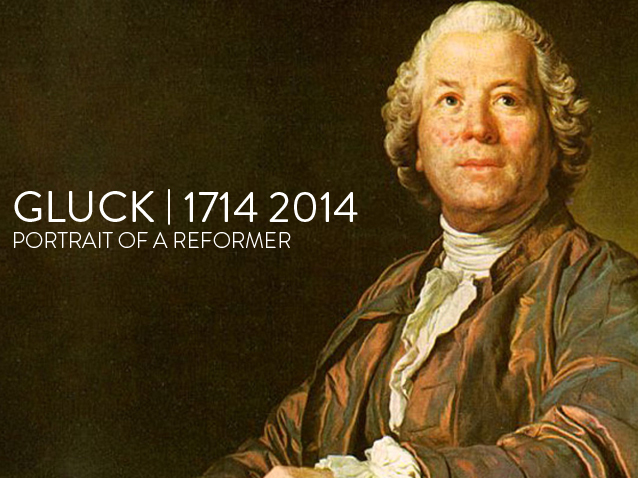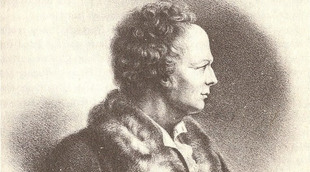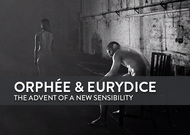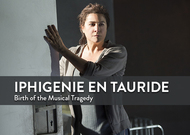 © DR
© DR
Three hundred years ago in Bavaria, a musician was born whose influence may seem limited in comparison to his role in the history of opera. This composer, whose varied musical career developed throughout Enlightenment Europe, was the source of a decisive revival of the concept of lyrical drama. A look at the major phases of his aesthetic reform provides an exciting opportunity for exploring concepts that are fundamental for opera lovers. Gluck sought greater simplicity in dramatic action, more naturalness in singing freed from the ornamentation of virtuosity. New demands led him towards a sensitive expression of emotive feelings. The reformer-composer clearly announced his intentions in the prelude to Alceste (1767): “I have sought to reduce music to its true function, which consists of supporting poetry so as to strengthen emotional expression and the impact of dramatic situations without interrupting the action and without weakening it with superfluous ornamentation.” With Gluck, who defined his music as “the language of humanity”, opera would leave behind the tyrannies of musical hedonism to become a lyric drama in which the truth of passion was expressed as naturally as possible.
The Formative Years
Christoph Willibald Gluck’s career initially appears to be the result of a succession of fateful encounters, both in terms of his training and his future theoretical evolution. Under the protection of Prince Lobkowitz, for whom his father worked as a forest warden, young Gluck, braving his father’s opposition, left for Prague, Vienna and Milan, where he became a student of the eminent Sammartini. From that famous teacher known all over Europe, Gluck acquired a solid compositional technique in pure Italian style.

Early on he showed a strong interest in writing operas. He composed more than a hundred of them. Weaned on the rule of “opera seria”, whose construction relies on virtuosity, the young composer debuted in Milan, where he created Artaserse 1741. The libretto was written by the Italian poet Métastase (1698-1782). This triumph earned him a series of commissioned works. His first 21 operas, some of which are known to us only from fragments, were staged in the great theatres of Europe.
His official career began in 1754. He settled in Vienna, where he was named Kapellmeister to Empress Maria Theresa, which gave him the opportunity for another important encounter, with Count Durazzo, the Court’s opera director. Through him Gluck discovered French comic opera, which won him over by opening up new horizons for him. Gluck kept up a correspondence with Charles-Simon Favart (1710-1792), master of this typically French genre. In 1758 he composed a whole series of comic operas, including Le Diable à quatre (1759) and Le Cadi Dupé (1761). He thus explored the possibilities offered by the “sincerity” and “naturalness” of the characters put on stage in this type of work, constructed around alternating spoken dialogues and musical parts. There is a complete break with the stilted language and complicated plots of Italian opera.
The real turning point in his career came with a new influential meeting, with an Italian scholar attracted to the new aesthetic concepts advanced by Diderot and Rousseau: librettist Raniero di Calzabigi (1714-1795) whose ambition was to revive opera. With the help of this brilliant theoretician, Gluck set off on an ambitious reform of lyrical drama.
Time for Reform
Gluck and Calzabigi, intending to rid opera of its excesses in order to bring it closer to the truth, created Orfeo et Euridice in 1762 at Vienna’s Burg-Theater. Until that date the musician had remained “an Italian” even though his approach to French comic opera opened up new perspectives for him. Orfeo et Euridice, for which Calzabigi wrote the libretto, was the first attempt to implement the “opera reform” that Gluck wanted: “My purpose was to strip music of the abuses which, introduced by the poorly understood vanity of the singers or by an exaggerated complacency on the part of the maestros, have long marred Italian opera…. I intended to restrict music to its true office, which is to serve poetry for the uninterrupted expression of the action, and without damping it down with superfluous ornamentation.” This new requirement, which calls into question the supremacy of the virtuosity dear to bel canto, seeks to promote a stylised musical expression that incorporates the natural inflexions of the spoken language. Singing, as an expression of characters’ innermost feelings, must respect the need to develop a tight plot.
The alto castrato Guadagni, who played the title role in Viennese performances of Orfeo et Euridice, nonetheless continued to improvise spectacular ornamentations to impress audiences with his great breath control. He did not avoid introducing one of those famous “suitcase” arias, so called because singers carried them in their luggage to use during opera performances, whenever they wanted, with no concern for connecting them to the plot. All these “opera seria” excesses began to clash with the tastes of an evolving audience in the second half of the 18th century.
Prelude to Alceste 1767
Alceste, created in 1767, marks the decisive stage of the reforms undertaken by Gluck. In the dedicatory epistle to the Duke of Tuscany, which serves as prelude to this manifesto/work, all the choices that guided the composer are laid out. Far from the artifice of useless virtuosity, Gluck seeks fluidity by abandoning the principle of separation between recitative and aria. This search for musical continuity, which ensures dramatic tension, is a major contribution. To better achieve this, all the elements are made subordinate and integrated into the action, starting with the overture that heralds the drama. The choirs and ballets are no longer extraneous additions to the plot line. Each element of the drama has its use and contributes to a single goal: touching and moving the audience with a faithful depiction of feelings.
The ideal of emotional truth, backed by the search for natural simplicity in sung expression, is achieved in Iphigénie en Aulide, created in Paris in 1774 with support from Queen Marie Antoinette, Gluck’s former pupil. This “opera tragedy” whose libretto is adapted from Racine’s Iphigénie ensured the triumph of the composer who had settled in Paris.
A Very Parisian War
In 18777 Paris was in turmoil: Armide, composed on a libretto by Quinault, brought to a climax a poisonous quarrel in the Parisian press between partisans of the new French opera and the fans of traditional Italian opera. The “Gluckist” contingent faced off against the Italianising contingent, which championed a very good Italian composer, Niccolo Piccinni. The two implicated musicians actually respected each other greatly and never clashed. Their respective partisans fabricated cabals and plots, following motivations that fell far outside the operatic framework. All the partisans of Marie-Antoinette were fervent Gluckists, while the Piccinists included all her detractors: Marmontel, d’Alembert and Madame du Barry. The success of Iphigénie en Tauride two years later, in 1779, gave the ultimate victory to the partisans of French opera. This work seems to summarise all the musical advances that the composer worked for.
Ultimately appearing as “the Austrian woman’s” favourite, Gluck had to leave Paris in 1779 to go to Vienna, where he died in 1787, two weeks after Don Giovanni was staged in Prague.
The man who dreamed of composing music “proper to all nations” paradoxically left a great number of works composed in the Italian tradition. His operas that follow the principles inspired by his great reform are less numerous – but the most performed and most admired, as demonstrated by the analyses of Richard Wagner of the enthusiasm of Hector Berlioz, who were fascinated by the innovative genius of a contradictory oeuvre positioned at the turning point of two eras. Mozart came along to fulfil and exceed the musical and dramatic promises contained in the great works of Gluck.
Catherine Duault
the 02 of July, 2014 | Print



Comments